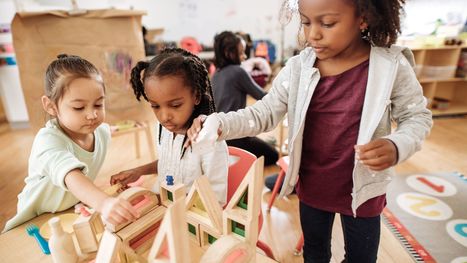A few years ago, I began shifting to a play-based approach in my kindergarten classroom. Research extolled the physical, cognitive, social, and emotional benefits of play and called to mind Friedrich Froebel’s vision of kindergarten as a place where play and learning go hand in hand.
As I made small changes in my classroom, I began to understand that play is a primary and integral mode through which children make sense of the world, and that it is essential to their development and well-being. In addition, it supports skills like collaboration, communication, and creativity. Offering play can feel challenging when mandated programs and standardized tests are requirements of many school districts, but play-based learning is an effective practice for deepening understanding and engaging children. The key is finding a balance between academic expectations and the developmental needs of young students.
Research and publish the best content.
Get Started for FREE
Sign up with Facebook Sign up with X
I don't have a Facebook or a X account
Already have an account: Login
Professional learning in a glance (or two)!
Curated by
John Evans
 Your new post is loading... Your new post is loading...
 Your new post is loading... Your new post is loading...
|










